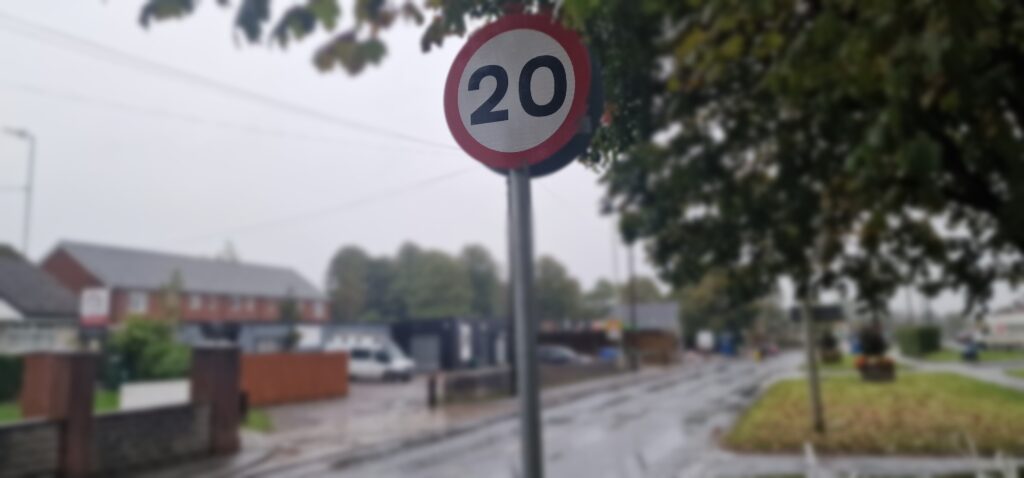A recent poll conducted by Redfield & Wilton Strategies reveals that the majority of people in Wales are against the nationwide imposition of 20mph speed limits on restricted roads. This new speed limit, implemented on September 17, 2023, has garnered significant criticism from motorists, businesses, and residents, with a petition to “rescind and remove the disastrous 20mph law” receiving a record-breaking number of signatures. When compared with a similar poll by the same company before the introduction it shows public opposition has grown against 20mph speed limits in Wales.
59% of people oppose the 20mph policy with just 29% in favour
When asked in the poll to what extent, if at all, they support or oppose the Welsh Government’s decision to impose a default 20mph speed limit on roads where cars mix with pedestrians and cyclists, 59% of respondents opposed the policy, with just 29% in favour. A similar poll conducted just before the policy’s introduction showed that 34% opposed it, while 46% were supportive. The data indicates that after experiencing the policy in action, Welsh voters’ opinions have clearly changed.
This is in stark contrast to what was claimed by Lee Waters, the Deputy Minister for Climate Change, who said before the introduction that he was “pretty confident that, as people get used to it, support will rise.” He made this statement in response to an ITV poll that found only 31% in support of the speed limit reduction, with 66% opposing the policy, similar to the latest poll. Another poll by YouGov in September also indicated that 61% of people in Wales opposed the introduction of the default 20mph speed limit, with 33% in favour.
Not conclusive that the new 20mph limits will save lives
First Minister Mark Drakeford argues that clear evidence supports the reduction of speed limits as a means of reducing collisions and saving lives. However, a study conducted by Queen’s University Belfast, Edinburgh University, and the University of Cambridge found that reducing speed limits from 30mph to 20mph had “little impact” on road safety. As with many contentious issues, different studies yield conflicting results, and the assertion by the First Minister that the evidence is clear can be disputed.
Some modelling suggests that there could be approximately nine fewer deaths in Wales as a result of this change, assuming it positively impacts road safety. To put this in perspective, the Welsh Government reported 92 fatalities in Wales due to road collisions in 2022. While every life is invaluable, at a macro level, nine fewer deaths might seem minimal when considering that 35,694 deaths were registered in Wales in 2022 for various reasons. While it is difficult to assign a monetary value to each life, some argue that the government should prioritise addressing the deaths resulting from the subpar performance of the NHS in Wales
The ballot box the best place to show your opposition
The Welsh Government defends the £32.5 million price tag to change traffic signs and road markings for their 20mph flagship policy despite widespread opposition. Even among Labour voters, there are more people against the 20mph limit than supportive. While the policy has sparked enough anger to generate a record number of signatures on a petition calling for its removal, it is unlikely that this will lead to any significant shift in attitude from ministers in the Senedd.
Ultimately, the most effective way to express opposition to a government imposing policies such as the 20mph speed limit is by voting against that government in the next Senedd election. As you consider your options for that election, keep in mind that the current Welsh Labour Government is working on expanding the Welsh Parliament from 60 to 96 members, which could incur an additional cost of around £75 million to the taxpayer between Welsh Parliament elections.
This is yet another policy that the public of Wales opposes.
Follow me on Twitter, Instagram, Facebook, Tik Tok, or Gettr for my daily updates, or read my blog on how two-year NHS waiting times are 100x higher in Wales than in England.

